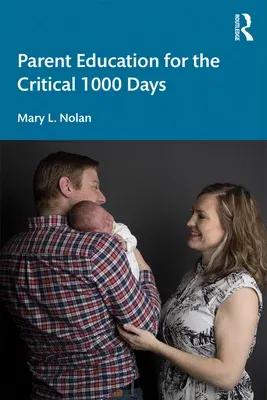Mary L Nolan
(Author)Parent Education for the Critical 1000 DaysPaperback, 27 February 2020

Qty
1
Turbo
Ships in 2 - 3 days
Only 3 left
Free Delivery
Cash on Delivery
15 Days
Free Returns
Secure Checkout

Print Length
240 pages
Language
English
Publisher
Routledge
Date Published
27 Feb 2020
ISBN-10
0367445409
ISBN-13
9780367445409
Description
Product Details
Author:
Book Format:
Paperback
Country of Origin:
US
Date Published:
27 February 2020
Dimensions:
23.11 x
15.49 x
1.52 cm
Genre:
Family
ISBN-10:
0367445409
ISBN-13:
9780367445409
Language:
English
Location:
Oxford
Pages:
240
Publisher:
Weight:
362.87 gm